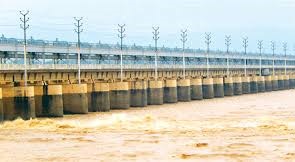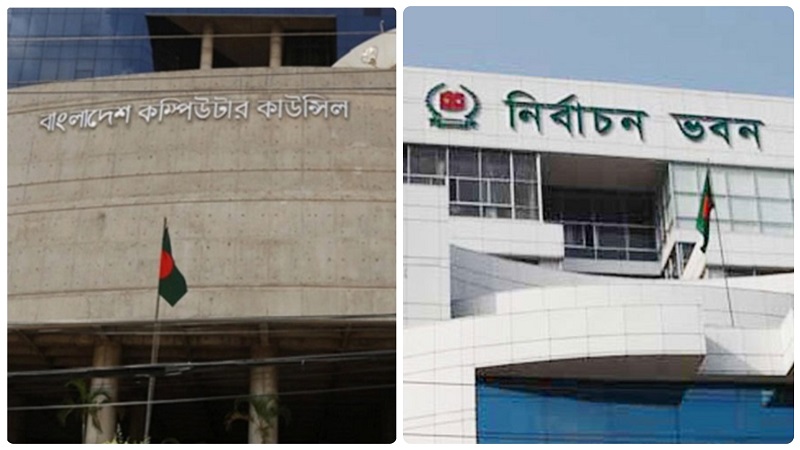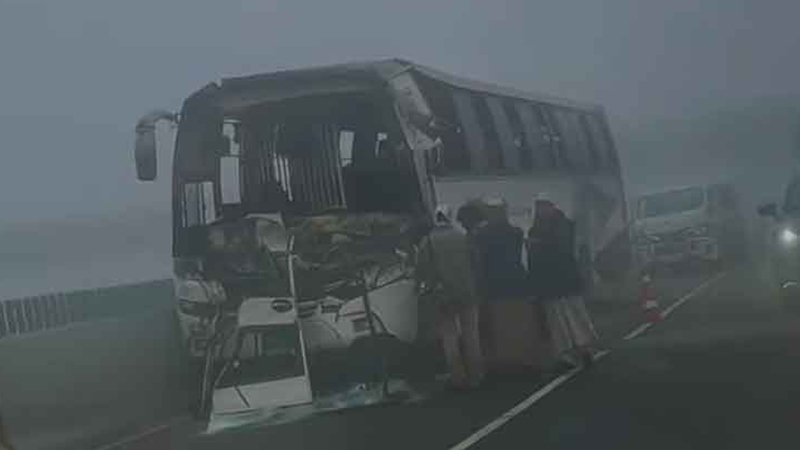The Bangladesh government has emphasised an early construction of reservoirs on the tributaries and distributaries of the Padma as an alternative to the cancelled Ganges Barrage project for utilising water of the river in the lean season.
The government has also started its preparations for the review of the Ganges water treaty — signed with India 24 years ago for a 30-year period — for an informed negotiation on the matter with India, water resources ministry officials said.
Prime minister Sheikh Hasina raised the need for utilising Ganges water in the official bilateral talks with her Indian counterpart Narendra Modi on December 17, Bangladesh officials said, adding that the matter was not reflected in the joint statement of the virtual talks due to the unwillingness of Delhi.
However, the government has been working with Indian authorities on conducting a study at the earliest on the scope of an optimum use of the Ganges water, officials said.
The matter was discussed at the level of water secretaries in August 2019 and later a technical body has been formed on the matter.
Dhaka has recently proposed a terms of reference for the study, they said, adding that Delhi is yet to come up with any response on the TOR.
Bangladesh is likely to try to expedite the matter as any study like this requires at least two years to complete, an official said.
Professor Mushfiqus Salehin at the Institute of Water and Flood Management at Bangladesh University of Engineering and Technology told New Age on Sunday evening that a proper feasibility study should be carried out keeping all options open before undertaking huge projects involving rivers, including the Padma, for the entire region.
‘Negative impacts, including damage to the environment and the people, should be minimised,’ he told New Age on Sunday evening.
After her official visit to India in April 2017, prime minister Sheikh Hasina cancelled the Ganges Barrage project at Pangsha in Rajbari terming it as a suicidal project like the Teesta Barrage.
The government had earlier planned to construct the barrage at Pangsha between 2014 and 2020 at a cost of $4 billion to check the intrusion of salinity, supply water for irrigation in the country’s south-western region and protect the biodiversity of the Sunderbans, according to project documents.
The government had also carried out feasibility studies on the project on its own.
India objected to the barrage on the Padma apprehending adverse impacts on the upstream of the Farakka Barrage in West Bengal.
The construction of the barrage awaited clearance from New Delhi, which sought a detailed feasibility study report on the planned barrage.
The report of the study was, however, not published.
India commissioned the Farakka Barrage in April 1975 unilaterally diverting the Ganges water from the upstream to flush the Kolkata port.
The Indian barrage drastically reduced the river’s water flow into lower riparian Bangladesh adversely affecting its agriculture, fishery, forestry, navigation and industrial growth.
The intrusion of salinity from the Bay of Bengal deep inside Bangladesh due to the low Ganges flow poses a threat to the biodiversity of the Sunderbans, a world heritage site.
Bangladesh and India signed in 1996 the treaty on the sharing of the Ganges water at Farakka for 30 years.
Sheikh Hasina, then Bangladesh prime minister, and her Indian counterpart HD Deve Gowda signed the treaty on behalf of their respective government in the wake of the unilateral withdrawal of the
water from the common river by India.
A statistical analysis of data from 1997 to 2016 indicates that for 65 per cent of the time Bangladesh did not receive its guaranteed share during the critical dry periods with high water demand, according to a study conducted by a four-member panel of foreign and local experts.
The study styled as ‘A critical review of the Ganges Water Sharing arrangement’ was jointly conducted by Fulco Ludwig and Kazi Saidur Rahman of Wageningen University and Research of the Netherlands, Zahidul Islam of Alberta Environment and Parks of Canada and Umme Kulsum Navera of the BUET department of water resources engineering.
The study was published earlier this year.
Bangladesh has been in a protracted negotiation for signing interim agreements with India on the sharing of water of other common rivers, including Teesta, Feni, Manu, Muhuri, Khowai, Gumti, Dharla and Dudhkumar.













